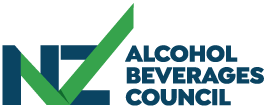Four out of five employers do not have alcohol in the workplace policies in place according to a report by the Work Foundation [1] from Lancaster University.
The report commissioned by the International Alliance for Responsible Drinking (IARD) also found that more than one third of managers agreed socialising in person is important given the increase in working from home.
However four in five employers do not have guidance on inclusive social events such as having non-alcoholic beverages available.
“The report shows employers put significant focus on employee health and wellbeing and developing alcohol in the workplace policies is part of this,” said NZ Alcohol Beverages Council (NZABC) executive director Virginia Nicholls.
The way in which New Zealander’s drink is undergoing a cultural shift. The Stats NZ alcohol consumption per capita has also declined 29% since 1986 [2].
The NZ Health survey says that 84% of NZ adults (more than four out of five of us) are drinking beer, wine and spirits responsibly. This is an increase of 3 percentage points from last year (81% 2022) [3].
“We encourage New Zealand businesses to make use of the free resources that IARD has launched to develop effective alcohol policies and tools,” said Virginia.
IARD has launched resources for senior managers to develop effective alcohol policies and tools for line managers to support employees in the workplace.
These resources are designed to inspire organisations to create inclusive work cultures that take account of the diverse needs and preferences of employees.
They are not intended to replace polices that may already exist. Polices will differ depending on the organisation and nature of its business as well as local and national context.
These resources include:
- A guide to help senior managers develop effective alcohol in the workplace policies: guide for senior managers on the importance of Workplace Alcohol Policies
- An interactive online course for line-managers to support individuals misusing alcohol which sets out the importance of inclusion and informed choice within work environments, whether employees choose to drink or not [4]: Alcohol in the Workplace: Line Manager Resources.
“IARD’s resources suggest offering non-alcoholic options which are important for those who are driving, pregnant or simply choose not to drink,” said Virginia.
The report makes clear recommendations to employers on how to create inclusive and positive workplace cultures:
- Event labelling – change the description of events away from ‘drinks’ to socialising
- Alternative drinks – provide low and no alcohol drinks.
- Alternative events and event timings – host morning, lunch or afternoon gatherings to include those with caring responsibilities
- Dietary requirements – ask about preferences for non-alcoholic drinks
- Training – provide resources and tools to support effective alcohol in the workplace policies.
These resources are part of IARD’s ongoing work to help support businesses in adopting responsible practices and reduce harmful drinking. This is also about supporting employees who choose not to drink. The NZABC is a member of IARD.
IARD has also provided free resources for ‘retail staff and servers’, to help serve and deliver alcohol responsibly. This resource is intended to complement, rather than replace existing material and to provide guidance where nothing is in place [5].
About IARD
The International Alliance for Responsible Drinking (IARD) is a not-for-profit organization dedicated to reducing harmful drinking and promoting understanding of responsible drinking. We are supported by the leading global beer, wine, and spirits producers, who have come together for a common purpose: to be part of the solution in combating harmful drinking. To advance this shared mission, IARD works and partners with public sector, civil society, and private stakeholders. www.iard.org
References:
[1] The Work Foundation at Lancaster University and the International Alliance for Responsible Drinking (IARD) commissioned Survation to carry out a nationally represented survey of 1,167 senior business leaders across Great Britain. The fieldwork took place online between 29 April and 7 May 2024.
The study is based on a literature review, a Survation survey of 1,167 senior business leaders across Great Britain, and a roundtable attended by relevant national and international stakeholders. The fieldwork for the survey took place online between 29 April and 6 May 2024, and the roundtable took place online on 9 May 2024. Full title of report: Atay, A. and Williams, E. (2024). Working together: Maximising the opportunities of a multigenerational workforce, Work Foundation at Lancaster University.
[2] Stats NZ total NZ population 15 years and over alcohol available for consumption (per head of population). Year end 1986 (10.867 litres), June 2024 (7.666 litres). Browse – Infoshare – Statistics New Zealand (stats.govt.nz)
[3] NZ Health annual survey December 2023: New Zealand Health Survey | Ministry of Health NZ
[4] Organizations can use this to provide their line managers the tools to recognize signs of alcohol misuse and manage situations sensitively and effectively.
[5] IARD launches resources for retail staff and servers to help prevent sale of alcohol beverages to minors – International Alliance for Responsible Drinking, September 2023
